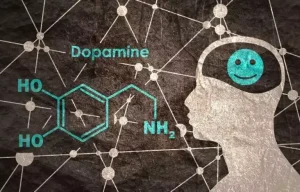
If The Recovery Village is not the right fit for you or your loved one, we will help refer you to a facility that is. Understanding certain terminologies related to alcohol use will help facilitate a better understanding of the disorder. When their provider retires or moves, they may not find anyone willing to take over. The criteria include having a pattern of consumption that leads to considerable impairment or distress. Hosted by Amy Morin, LCSW, this episode of The Verywell Mind Podcast shares strategies for coping with alcohol cravings and other addictions, featuring addiction specialist John Umhau, MD.
Experiencing withdrawal
Studies have linked authoritarian or neglectful parenting, family violence, and divorce to increased likelihood of substance use problems later in life. Growing up with strong ties to and a sense of belonging—to a family, to a belief tradition, to a culture—are known to be protective against addiction. Some studies show that genes can account for as much as 50 percent of a person’s risk for addiction, although the degree of genetic influence shifts in importance over time. For example, environmental factors such as family and social relationships are more strongly tied to use of alcohol and nicotine in adolescence than later in life. Nevertheless, there is no single gene for addiction nor even a group of genes. Alcohol in some form is widely used for pleasurable purposes and is an important part of the social fabric worldwide, today as in ancient times.
Reversing Liver Damage: What Is Possible?

A few empirically validated practices can help identify strong treatment programs. Treatment centers should ideally have rigorous and reliable screening for substance use disorders and related conditions. They should have an integrated treatment approach that addresses other mental and physical health conditions.
Recovery Coaching

Behavioral therapies can help people develop skills to avoid and overcome triggers, such as stress, that might lead to drinking. Medications also can help deter drinking during times when individuals may be at greater risk of a return to drinking (e.g., divorce, death of a family member). Physiologically, alcohol alters the balance of chemicals in the brain. It affects chemicals in the brain’s reward center, such as dopamine. The body eventually craves alcohol to restore pleasurable feelings and avoid negative feelings.
How Alcohol Addiction Develops
They should emphasize linking different phases of care, such as connecting patients to mental health professionals, housing, and peer support groups when transitioning out of the acute phase of care. They should also have proactive strategies to avoid dropping out, involve https://ecosoberhouse.com/article/what-sober-networking-is-and-why-it-is-important/ the family in treatment, employ qualified and certified staff, and be accredited by an external regulatory organization. A range of conditions, including alcohol or medication overuse, nonalcoholic fatty liver disease (NAFLD), and chronic infections, can damage your liver.
Is Alcoholism Genetic or Hereditary?
One use of a substance can produce a pleasurable effect that motivates interest in repeating the experience. But the experience of pleasure is relative; it hinges in part on biology and very much on what else there is going on in a persons life that is meaningful or rewarding. Neuroscience research supports the idea that addiction is a habit that becomes deeply entrenched and self-perpetuating, rewiring the circuitry of the brain as it is repeated.
An example would be a father who falls asleep on the couch after having several drinks three or four days a week, missing out on time with his kids and wife. Another would be a college student who repeatedly has trouble making it to class because she was drunk the night before. These individuals, sometimes called “almost alcoholics,” may not see the connection at first but would often benefit from help and support. At times, our weakened mental or emotional state can be too much to bear, and some people may find the only solution to get through a difficult period is to use drugs or alcohol. Some people abuse substances, or self-medicate, to disconnect from the world.
- Social factors such as peer pressure, advertising and environment also play an important role in the development of alcoholism.
- However, loved ones often want to help, such as by showing solidarity or hosting a gathering that feels safe for their loved one.
- It affects more men than women and is fatal 10 to 20 percent of the time.
- Typically, these substances trigger feelings of pleasure or reward in the brain, which feels good.
Early signs include fatigue, muscle weakness, itchy skin, and abdominal pain, which can eventually lead to jaundice (yellowing of the skin) and dark urine, among others. If untreated, this condition why do people become alcoholics can lead to liver failure—in which the organ stops being able to complete its functions. Healthcare providers may call for clinical tests and evaluations to track liver damage and assess its health.
- Unlike most other organs in the body, the liver can repair itself—to a point.
- The first step toward a person’s recovery is to acknowledge they have an alcohol dependency problem.
- Alcoholics Anonymous is one example; it offers a structured 12-step path toward recovery with a community of support from those who have dealt with similar challenges.
- The condition is likely the result of a combination of genetic, social, psychological, and environmental factors.
- End-stage alcoholics are also at a high risk of dying from accidents, trauma and suicide.
- If you have a loved one suffering from alcoholism, it’s important to understand that alcohol use disorder is a chronic, yet treatable condition.
- Those in the end stage of alcoholism, or late or deteriorative stage, are consumed by their drinking.
- Left unchecked, a person with mental health problems may turn to substance abuse to get some kind of relief from daily life.
- And his sense of status and meaning and purpose had been eroded when he relinquished his mentoring role and gave up the allotment.
There are effective ways to treat this disease and steps you can take to help a loved one enter recovery. This article discusses alcohol use disorder symptoms and strategies for treatment and intervention. Ultimately, sobriety is the responsibility of the person who has the alcohol addiction. It’s important to not enable destructive behaviors and to maintain appropriate boundaries if the person with the alcohol addiction is still drinking. This can mean cutting off financial assistance or making it difficult for them to fulfill the addiction.

